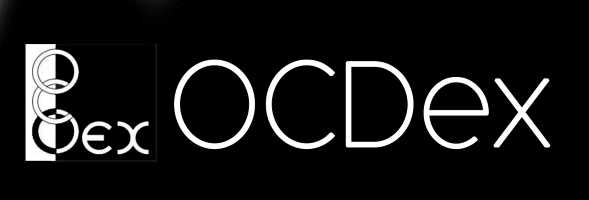(This article and the manuscript were submitted by the research team and may be updated in the future)
Education has always been a “primary commodity” in the Philippines. With the implementation of the Universal Access to Quality Tertiary Education Act (Republic Act 10931), State Universities and Colleges (SUC) in the country are now mandated to provide free education to all tertiary students enrolled in their programs. Because of this, about 3.2 million college students were reported to enroll in the year 2018 alone [1] and this number is expected to double due to the implementation of the said law.
The Effect of COVID-19 Pandemic to Tertiary Education
The current COVID-19 has crippled the delivery of tertiary education in the country. Nationwide suspension of classes from all levels was hence declared as a mitigation measure to control and contain the spread of COVID-19 across all regions in the country. As a result, a temporary academic freeze has been widely observed from March 2020 until July 2020. This has been the case since various SUCs in the country are still addressing the unresolved dilemma of balancing safety and delivery of quality education to all SUC stakeholders upon resumption of classes in August 2020.
The COVID-19 Challenge to Resumption of Classes
With the sense of urgency to resume all classes despite the COVID-19 situation in the country, it has been widely suggested that face-to-face classes be shifted to online modes of learning this August 2020 [2]. This proposed transition, however, has been met with a huge resistance by various faculty, administrative staff, and college students. In the banner “#NoStudentLeftBehind”, online classes have been dubbed as “anti-poor” and “education solely for the privileged” [3].
As recent facts stated, only 17% of college students have been reported to have the capacity to connect to the internet wherein only 5% of such students have stable internet connectivity at home [3]. With these cited facts, it is expected that enrollment to SUCs this academic year would plunge to at least 70% [4]. Shifting then to purely online modes of learning this August 2020, hence, may not be feasible given the present
situation of college students in the country.
Readiness of College Students for Online Learning – The Case of Bicol Region
Through the research grant given by Layertech Software Labs, Inc. and Hivos – People Unlimited, a group of faculty researchers from Bicol University College of Engineering (BUCENG) conducted a feasibility study solely focusing on this present dilemma. The capacity of SUCs and their students, hence, to undertake this proposed transition to online classes this August 2020 were thus reported to be comprehensively studied. In a pilot study conducted in the nine (9) SUCs in Region V, 160 (about 60%) of the 242 college students who willingly participated in a survey conducted from June-July 2020 were reported to have a monthly household income below PHP25,000. Even prior to the pandemic, about 60% of these students largely rely on cellular phones to accomplish academic tasks given to them and this
represented a recurring monthly expense of PHP1,000 on cellular data alone. It was also reported that this observed expense is expected to at least double when online classes are implemented this August 2020. With these facts, it is without a doubt that these less privileged college students will have the most disadvantage if a purely online mode of learning is implemented upon the resumption of classes this August 2020.
Assessment of SUC EATing patterns – The Case of Bicol Region
With these described evidences, enabling college students to undertake the proposed online transition would then largely rely on the capacity of SUCs to deliver quality education through the said modes of learning this August 2020.
With the goal of assessing the nine (9) SUCs in the Bicol Region within the context of Education Access in Tenders (EAT), the same group of researchers from BUCENG looked closely into the information technology (IT) related procurement activities of such SUCs from the period 2016-2020. Upon a comprehensive evaluation of the collected contracts, these researchers reported two categories classifying the capacity of SUCs in Bicol Region to successfully implement the proposed online transition, namely “fully capable” and “partially capable”. “Fully capable” SUCs were reported to have largely invested on computer servers, internet coverage and bandwidth, library and learning managements systems, subscription to online databases, and acquisition of software for research and instructional use. These capabilities, as reported by these researchers, corresponded to an equivalent investment amounting to PHP241.19 million.
In contrast, while “partially capable” SUCs were reported to be to financially secure such investments, no relevant awarded IT tenders from 2016-2020 necessary to ensure effective implementation of the proposed online transition were found for such SUCs.
Collectively, seven (7) of the nine (9) SUCs in Bicol Region were seen to be “fully capable” of implementing online classes this August 2020. Though these reported findings implied that the Bicol Region as a whole is seen to effectively implement the proposed online transition, the EATing patterns of the remaining two (2) SUCs which cater to the majority of at least 3000 enrolled college students in the region indicated that much still needs to be done to ensure all college students, regardless of privilege, be given a fair and equal access to quality tertiary education. The researchers then strongly recommended that SUCs classified as “partially capable” benchmark on the IT related procurement strategies that of “fully capable” SUCs.
Find the presentation slides below:
 Loading…
Loading…
Watch the full recording of the presentation below:
References:
[1] https://www.onenews.ph/college-enrollment-may-plunge-by-up-to-70-percent-officials-warn
[2] https://www.weforum.org/agenda/2020/04/coronavirus-education-global-covid19-online-digital-learning/
[3] https://www.msn.com/en-ph/news/national/online-classes-anti-poor-unstable-due-to-internet-in-the-philippines-
%E2%80%94rep-salceda/ar-BB13yXqR
[4] https://www.onenews.ph/college-enrollment-may-plunge-by-up-to-70-percent-officials-warn
References:
[1] https://www.onenews.ph/college-enrollment-may-plunge-by-up-to-70-percent-officials-warn
[2] https://www.weforum.org/agenda/2020/04/coronavirus-education-global-covid19-online-digital-learning/
[3] https://www.msn.com/en-ph/news/national/online-classes-anti-poor-unstable-due-to-internet-in-the-philippines-
%E2%80%94rep-salceda/ar-BB13yXqR
[4] https://www.onenews.ph/college-enrollment-may-plunge-by-up-to-70-percent-officials-warn

